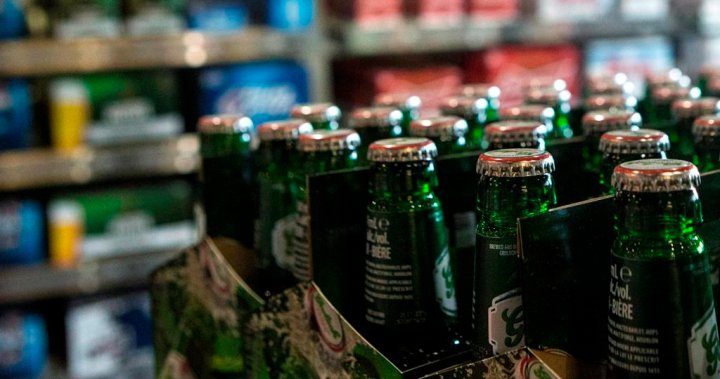Most Canadians will soon be able to order alcohol products directly from producers in other provinces by next spring or earlier, a move aimed at breaking down internal trade barriers as U.S. tariffs weigh on business growth and the job market.
This comes as an Ipsos poll conducted exclusively for Global News shows that six in 10 Canadians believe removing interprovincial trade barriers will help offset the potential economic damage from the trade war, and even lead to further growth.
“Canadians have heard everything that’s been said by provincial government leaders, premiers, and has been said by our prime minister and by other leaders in Canada from all segments about the need to get rid of inter-provincial trade barriers, and they actually think this is a good idea,” says Darrell Bricker, CEO at Ipsos Public Affairs.
Over the past several months, the federal government has been working to mitigate the negative effects to Canada’s economy from the trade war sparked by United States President Donald Trump’s tariff policies.
The overarching theme behind the government’s response has been to diversify trading partners and make it easier to do business domestically so that Canadian businesses can rely less on the U.S.
On July 8, the Committee on Internal Trade, which is made up of federal and provincial leaders responsible for trade regulations, met and shared updates on the work being done to remove internal trade barriers.
The committee signed a memorandum of understanding to work towards direct-to-consumer alcohol sales, with the exception of Newfoundland and Labrador, the Northwest Territories and Nunavut,

Get daily National news
Get the day’s top news, political, economic, and current affairs headlines, delivered to your inbox once a day.
“I’m pleased to announce that most jurisdictions have agreed to a Memorandum of Understanding committing to advance direct-to-consumer alcohol sales,” said Northwest Territories’ Minister of Industry, Tourism and Investment Caitlin Cleveland at a press conference after the meeting.
“Parties will now work towards finalizing more detailed operating agreements.”
The memorandum includes a deadline for all participating provinces and territories to enact direct-to-consumer alcohol sales by May 2026.
It isn’t clear yet exactly what Canada’s new alcohol purchasing system could look like.
But the concept behind direct-to-consumer means customers can order products directly from the producers instead of government-regulated distributors and retailers, and those sellers can offer their products outside of their base province or territory.
In some provinces and territories, such as Manitoba, alcohol producers may already be able to sell their products direct to customers, like at a winery or an on-site brewery store.
These new agreements could mean a more wide-ranging approach in which almost all producers will have the ability to sell directly to consumers.
According to the Intergovernmental Affairs Secretariat, this newly signed memorandum is in addition to the elimination of all federally-regulated interprovincial trade exceptions in the Canada Free Trade Agreement, as well as passing the Free Trade And Labour Mobility in Canada Act as part of the One Canadian Economy Act.
“This meeting (was) part of a series of conversations and actions and legislation passed federally and provincially which has created a more united Canadian economy than at any time since confederation,” said Freeland, speaking at the press conference.
“There is so much more work to do, and the tone of the meeting today was one of ambition and impatience. All of us want to do more.”
But most Canadians believe actions speak louder than words, according to the polling data.
Although two-thirds of respondents to the Global News Ipsos poll agree these measures could help grow Canada’s economy, more than half of all respondents say they will believe progress is being made on nation-building when they see it.
“There’s a greater degree of urgency because of what Donald Trump is doing and the threat that that represents to our country, but there’s there’s a fair amount of distance between commitment and actually proceeding,” says Bricker.
“Until we actually see that happening, to us, it’s just political rhetoric. I think that what those (polling) numbers are suggesting to us.”
These are some of the findings of an Ipsos poll conducted between June 17and 20, 2025, on behalf of Global News. For this survey, a sample of 1,000 Canadians aged 18+ was interviewed online. Quotas and weighting were employed to ensure that the sample’s composition reflects that of the Canadian population according to census parameters. The precision of Ipsos online polls is measured using a credibility interval. In this case, the poll is accurate to within ± 3.8 percentage points, 19 times out of 20, had all Canadians aged 18+ been polled. The credibility interval will be wider among subsets of the population. All sample surveys and polls may be subject to other sources of error, including, but not limited to coverage error, and measurement error.
Read the full article here

